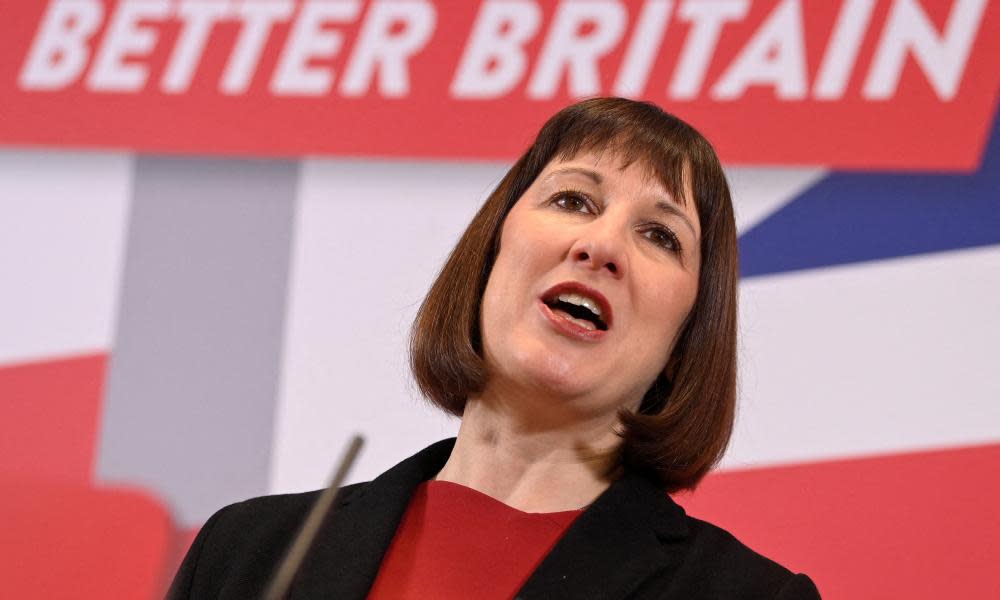Brexit, the environment, energy bills … it’s hard to tell Labour and Tory policies apart

Back in the 1950s, a term was coined to describe the consensus that had allegedly emerged over the way to run the economy in the postwar world. An amalgam of the names of two chancellors of the exchequer – Rab Butler for the Tories and Hugh Gaitskell for Labour – it became known as Butskellism.
Dispute has raged ever since over whether there was any such thing, yet while it is true that the two main parties had their differences – often serious ones – on certain broad principles they did agree: a mixed economy, the permanence of the welfare state and the need to maintain full employment.
After a fashion, Butskellism lasted until the 1970s, with the governments of Ted Heath and Harold Wilson struggling to keep the postwar show on the road. Its demise was only sealed by a combination of stagflation and the arrival of Margaret Thatcher.
Whisper it softly, but Butskellism has returned. While there are still areas where the Conservatives and Labour disagree, these tend to be managerial and technical rather than ideological. On the big issues not much separates them, with both parties shifting towards the centre in recent years. For want of a better word, let’s call it Reevuntism in honour of the shadow chancellor, Rachel Reeves, and the man she wants to replace at the Treasury, Jeremy Hunt (the Economist has gone for Mr Heeves).
One obvious example of Reevuntism is the cross-party consensus over Brexit. Hunt and Reeves were both remainers in the 2016 referendum campaign; both now insist that Brexit can and will be a success. Neither party wants a second referendum, or even a renegotiation that would involve going back into the single market. Rishi Sunak and Keir Starmer are both keen to remove some of the trade friction between the UK and the EU, but that is as far as it goes.
For a variety of reasons, the right’s vision of a post-Brexit Britain in which the economy would be made more competitive as a result of lower taxes and deregulation has never materialised. Nor was it the sort of Brexit leave voters in the less well-off parts of the country wanted anyway.
Starmer and Reeves hope to convince the public that there is a better way to do Brexit. They will be helped in this by the second strand of the new consensus: the recognition that a bigger and a more activist state is here to stay.
By no means all Tories are comfortable with the idea of the government running large chunks of the rail network or that tax as a share of national output is on course to rise to its highest level in seven decades. Liz Truss based her campaign to be prime minister around the idea the way to grow the economy faster was through cutting taxes and red tape.

Increasingly, though, the right of the Tory party looks as if it is fighting a losing battle. The government has been paying a chunk of domestic energy bills. It is in talks with Tata, the owner of Jaguar Land Rover, over a £500m subsidy to build a new battery factory in the UK. In the clearest sign that these are indeed different times, ministers have been urging the supermarkets to bring down the cost of food through voluntary price curbs.
Sunak and Hunt might not like this, any more than Conservatives in the late 1940s and early 1950s liked the idea of a National Health Service or state ownership of the coalmines. But the dream of a free-market utopia in which goods, money and people moved unchecked around the world has slowly faded over the past 15 years.
The financial crisis, the pandemic and geopolitical tension have resulted in economic polices that are more interventionist, more protectionist and more centred on national self-sufficiency. Sunak’s desire to turn the UK into a science and technology superpower is one example of this new reality. Starmer’s green prosperity plan is another.
The third strand of the new consensus involves the way in which the economy is run. Both parties accept that interest rates should be set by an independent Bank of England, that the government’s tax and spending plans should be audited by the Office for Budget Responsibility, and that the best long-term way to boost growth is through supply-side reform. Hunt wants to reduce the national debt as a share of output, but so would Reeves if she was chancellor. Both parties would be prepared to borrow – but only for investment.
When he was at the Treasury, Sunak borrowed more than any chancellor in peacetime to save the economy from collapse during the early stages of the pandemic. Would Labour have followed the same approach? Almost certainly. Would a Labour chancellor now be raising taxes – as Hunt is – to bring down public borrowing? Almost certainly.
Reevuntism has involved both parties tacking back towards the centre. This has not been an entirely trouble-free process for Starmer, especially over Brexit, where many party members would support rejoining the EU. Politically, though, the new consensus is much less problematic for Labour than it is for the Conservatives.
In part, that’s because the Tories have been forced to abandon so much of what they once believed in as a result of changing economic circumstances. In part, it is because the public has moved leftwards on the economy, becoming not just accustomed to, but also welcoming a more interventionist approach. But essentially, Labour is comfortable with the idea of a more activist state and the Tories are not.
Larry Elliott is the Guardian’s economics editor

 Yahoo News
Yahoo News 
